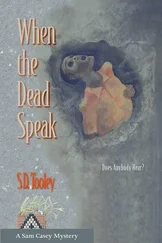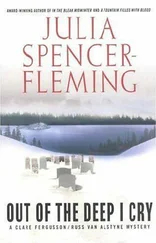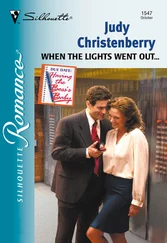Still cursing colourfully she grabbed the phone and dialled the number of her local minicab firm.
“What do you mean, twenty minutes?” she cried frantically. “I need a car now. Right away. All right, all right. Just do your best, will you?”
Her head was beginning to ache. This really was a wretched start to the day. Karen slumped into a chair. She had no choice but to wait. Perhaps a black coffee would help. She hurried into the kitchen and checked her watch for the umpteenth time. Unfortunately she could not turn the hands back.
It was five minutes past eight. Her appointment with the chief constable and the locally based CPS chief prosecutor was for 9 A. M. She had planned to allow an hour for her drive to HQ at Middlemore thirty-five miles away. There was all that holiday traffic to contend with, too. All too often in the summer, particularly in the mornings and evenings and even more so in the days close to a bank holiday, the first stretch of the journey, the road between Torquay and Newton Abbot, could be jammed solid. She realized she would now be lucky to have half an hour to get to Exeter, and that was never going to be enough. Why, oh why, did she always contrive to put herself at a disadvantage?
There was absolutely no way she was not going to be late.
The cab made it in fifteen minutes, not twenty. But the five-minute reprieve did not help much. It took ten minutes to get to the police station. That could have been a much longer journey on a bright sunny August morning in one of the nation’s holiday capitals, but it still didn’t help.
By the time Karen had retrieved her car it was 8.35 A. M. She was in deep lumber. She was about to put herself on the back foot, that was the worst of it, and how she hated that. The traffic at least moved after a fashion all the way to Newton Abbot, but it was a crawl. And although she broke every speed limit on the brief stretch of the motorway-standard A3 8 leading to Devon’s ancient county town, she did not arrive at the Middlemore HQ until 9.15. By the time she reached the CC’s office, having run across the car park and along the corridors, it was nearly 9.25, and she was sweating, flushed, out of breath and generally in a state of dishevelment.
“Go straight in,” said Tomlinson’s secretary. “He is waiting for you.”
The emphasis was heavily on the word is . The bloody woman didn’t quite sniff as she spoke to Karen, but she actually did contrive to look down her long nose.
“Thank you so much,” Karen responded icily.
She thought she probably disliked Tomlinson’s secretary, a neat-looking creature, superior in manner, with a geometric yellow haircut, every bit as much as she disliked the man himself. The secretary was of that extremely irritating species who had taken on an aura of self-importance even more highly developed than that of her employer.
She knocked on the door to Tomlinson’s office. His voice boomed at her.
“Enter.”
Karen reflected that it was like something out of Oscar Wilde. Enter indeed. Who did the bloody man think he was?
She entered.
Tomlinson, a small trim man, every bit as neatly made and turned out as his secretary, was sitting at his overly large desk directly facing the door, cup of coffee in his hand, immaculately shiny-shod feet propped up on the desk before him.
The chief prosecutor, James Cromby-White, with whom Karen had had many previous dealings, all too many of them tricky to say the least, was sitting to Tomlinson’s right in one of the squashy black-leather armchairs which lined the chief constable’s spacious office. He grunted a greeting at Karen, but made no attempt to rise. As he was grossly overweight, a man of moderate height of five foot seven or eight maximum, weighing in at around eighteen or nineteen stone, Karen reckoned, he probably had great difficulty manoeuvring himself out of the low-slung chairs.
However, Harry Tomlinson, a deceptively agile little man, swung his legs off the desk and positively bounced to his feet as Karen closed the office door behind her.
“Ah, Detective Superintendent, you’ve decided to grace us with your presence after all, have you?” he boomed.
“Sorry, sir,” said Karen, who already had her excuse to hand. “Car trouble, I’m afraid...”
She may as well not have bothered to prepare herself. Tomlinson wasn’t even listening. Instead, the diminutive police chief pointedly tapped the face of his watch with the fingers of his right hand.
“Time, Detective Superintendent,” he told her. “Time. Time and discipline. The very key to policing. If you can’t discipline yourself, how can you expect to discipline others?”
Karen winced. She couldn’t believe that the bloody man was giving her a dressing-down as if she were a badly behaved schoolgirl, in front of Cromby-White, the leading light of Devon and Cornwall’s Crown Prosecution Service. Her head hurt. Her hangover was still raging. What she wanted to do was to square up to Tomlinson and tell him a few home truths — like, with the hours she worked and the pressures she had to carry, it shouldn’t really be the end of the world if she got herself wrecked occasionally and on this occasion had been a few minutes late for a meeting. To Tomlinson, of course, such a thing was the end of the world. And this was not a day for confrontation. Karen wanted and needed a result.
She saw that both men had her Richard Marshall report to hand. All that mattered was that she got the go-ahead to charge the bastard. She could not allow herself any self-indulgence.
“You’re absolutely right, sir, and I really am very sorry,” she said, making no attempt to elaborate on her carefully crafted excuse. She was aware of James Cromby-White looking mildly surprised. Her intrinsic lack of respect for authority was well enough known, after all.
Tomlinson, too, looked surprised. He would certainly not have expected that kind of response from her. Indeed, she thought, he may have been deliberately trying to wind her up, to make her react in the confrontational way she had been tempted towards, to make her put herself at a further disadvantage. He was, after all, a prime operator when it came to political manoeuvring.
Whether or not that had been the CC’s intention, Karen’s meek reply, even though it had nearly choked her, might, she thought, prove to be her first halfway intelligent move of the day. Tomlinson seemed instantly appeased. She knew well enough how he liked servility — or respect for your superiors, as he would no doubt phrase it.
“Good, I’m glad to hear it,” he said. “Right.” He consulted the watch he had so pointedly tapped. “As we have lost almost half an hour of the time I can give to this meeting I suggest we get on with it. OK? James and I are both familiar with what is going on, Superintendent. No new developments since you filed this report, I don’t suppose?”
Karen had completed her report of Marshall’s arrest and interrogation to date just before leaving Torquay Police Station the previous evening and e-mailed it to the chief constable.
“No, sir.”
“And still not any joy from interviewing the man?”
“Not really, sir. Marshall’s a pretty cool customer, as you know, or he wouldn’t have got away with what he did for this long.”
“Indeed. So the question is—” Tomlinson glanced towards the top CPS lawyer who was so far giving nothing away. “—do we have enough to charge him?”
“I’m sure we do, sir,” said Karen quickly, determined to have her say before Cromby-White started to point out the shortcomings of the prosecution case so far. “We have a body that we can already identify beyond all reasonable doubt as that of Clara Marshall, chiefly because we have found her Rolex watch. We know that Marshall had the means to dump a body at sea, in that he had a boat and is an experienced sailor. It is possible that this case may have been reopened eventually simply on the grounds of time, even without bodies. It would, after all, be without precedent I think for a woman and two children to disappear in the way that Clara Marshall and her children did and then to be discovered safe and well after this length of time. But we now have much more than that. We have a body at last, and don’t forget we have witnesses who saw Marshall take his boat out and set off on a course towards Berry Head at around the time of his family’s disappearance.”
Читать дальше












